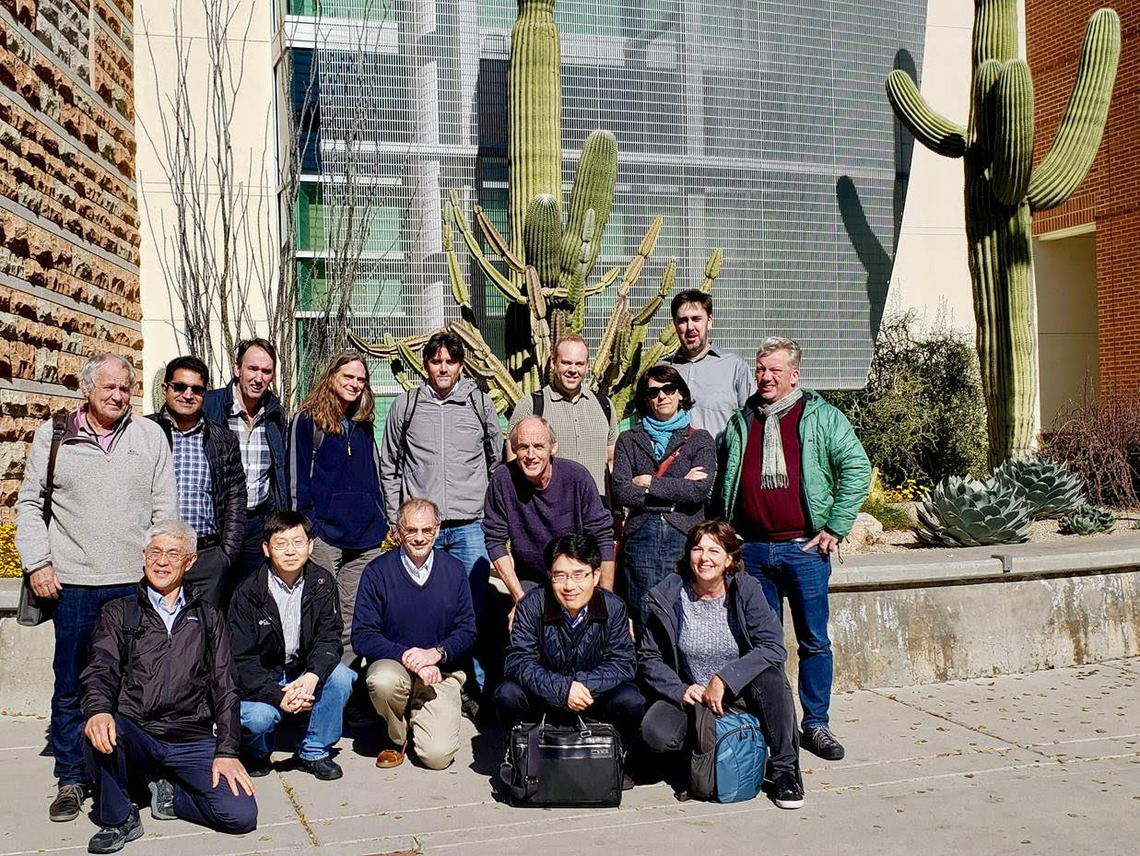Experts Discuss Climate Response to Radiative, Other Forcings

GEWEX
Fifteen international climate and atmosphere experts gathered on campus Jan. 22-24, in a meeting of the Global Energy and Water cycle EXchanges (GEWEX) Data and Analysis Panel (GDAP). EDO was a primary sponsor of the event, which was hosted by executive committee member Ali Behrangi of the Hydrology and Atmospheric Sciences (HAS) department. The central question governing the GDAP is, “How sensitive is the Earth’s climate to changes in radiative and other forcings?” Answering this question will enable improved prediction of transient natural climate variations. Among the topics covered at the meeting were several related to EDO's science focus areas on sea ice-atmosphere processes, cloud feedbacks, sea-level rise, and precipitation. Behrangi reported on UA/EDO activities and core studies and UAZ's contributions toward improving the future precipitation climatology products supported by GDAP. Additional EDO/HAS participants included Xiquan Dong, who summarized UAZ's capabilities to contribute to the Aerosol and Cloud, Convection and Precipitation (ACCP) Designated Observable (DO) observing systems pursued by NASA; and Xubin Zeng, who led a discussion on efforts that can potentially link activities between the GEWEX Global Atmospheric System Studies (GASS) and GDAP panels.
GEWEX is a network of scientists gathering information on and researching the global water and energy cycles in order to better predict changes in the world's climate. The organization is part of the World Climate Research Progamme; the project office supports scientists' efforts through meeting planning, implementing research goals, and communications.

